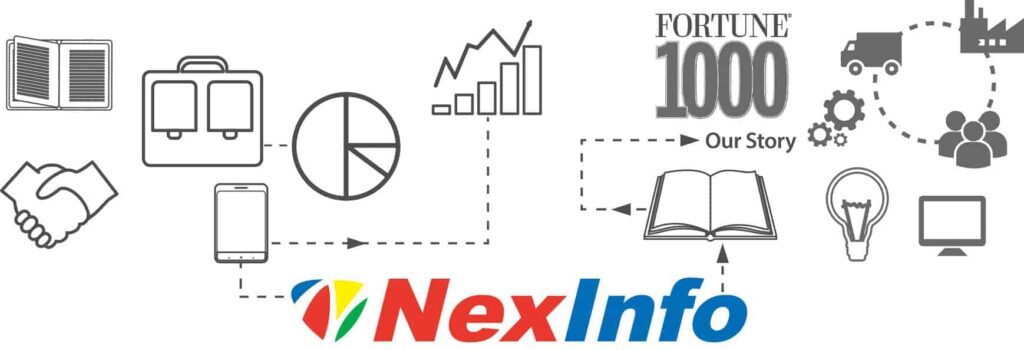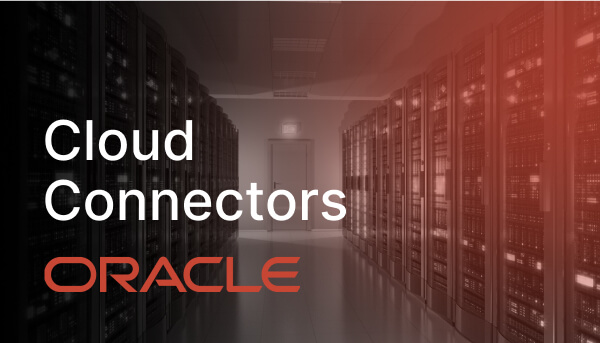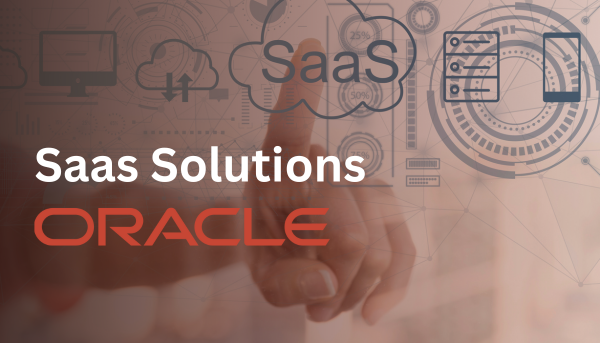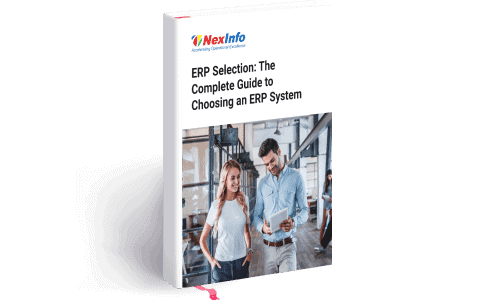The cloud services industry skyrocketed during the pandemic and is slated to keep growing through the early 2020s. A recent forecast from Gartner indicates that public cloud end-user spending will increase by 23.1% in 2021.
When faced with the opportunity to migrate to a cloud vs. on-premise ERP, your company will most likely have a lot of questions.
Every department in your organization uses your ERP slightly differently. Each team will have specific areas that cause them concern or make them reluctant to just jump into living the cloud life.
These are legitimate concerns. Adopting new technologies without a thorough understanding of how they affect business processes is never advised.
However, clearly examining the benefits and drawbacks of upgrading to a cloud ERP solution versus a solely on-premise system should give a clearer picture of where you’re headed and what is possible.
6 Reasons Why Businesses Choose ERP Cloud vs. On-Premise
Here is what you can look forward to with a robust cloud-based ERP solution:
1. ERP System Flexibility and Scalability
Because vendors and/or vendor partners have instant access to your Oracle Fusion cloud ERP system, they are able to update and upgrade your system in quite literally an instant. This reduces interruptions to your supply chain from system downtimes for maintenance.
As your company grows, new users are added just as quickly. They just need an approved device with a web browser and an internet connection. This is often their own mobile phone or tablet and not necessarily a dedicated, in-house computer.
2. Reduced Burden on IT
In our digitally driven economy, the IT department can often be pulled in several different directions. They certainly won’t be made obsolete by moving or adopting a cloud-based ERP solution, but they can potentially be used more effectively.
The best Oracle Fusion cloud ERP systems offer continuous support and troubleshooting for users. This means that the actual ERP system experts are fixing any bugs or issues, instead of in-house IT or superusers.
You can further enhance your efficiency by adding quick and accurate system migration with automatic data backups.
3. Potential Cost Savings
There are always pros and cons when adopting new technology. However, over time, the flexibility of an Oracle Fusion cloud ERP solution holds the advantage of its total cost of ownership.
The potential savings can be found via:
- Decrease in hardware costs (in-house computers) as the use of personal devices increases
- The system is being serviced remotely
- On-premise ERP usually costs more to implement at the outset
- Cloud implementation is quick, resulting in reduced launch costs
- Subscription fees mean monthly costs but also automatic upgrades
- The newest software optimizes processes for reduced operating costs
- Increased productivity due to access and agency
- Quicker customer service and accuracy
- Zero system upgrade costs since systems are automatically upgraded every quarter
- Newer features become available as soon as they are released
4. The Global Advantage
As companies grow and our economy continues to globalize, companies find themselves working across time zones and continents.
Cloud computing makes sense for businesses with employees across the globe. It is also imperative for transparency.
Oracle Fusion cloud ERP is always online, with updated data and an accurate picture of what is happening made available to all sites. Implementing an Oracle Fusion cloud ERP system is also easier and more cost-effective when dealing with multiple locations.

5. Superior Security Measures
While thinking about your company data in the cloud might give you pause, the best ERP cloud providers have sophisticated security measures. They offer an extra layer of protection to your data that on-premise ERP systems usually don’t offer.
While both traditional ERP and cloud ERP systems can limit users to certain access points, cloud software security has the ability to be even more customizable. For example, they can limit access while in different locations.
A great example of advanced security measures is Oracle’s Data Safe, which is an entire process that Oracle uses to help its clients assess and mitigate data risk.
6. Ease of Access With the Cloud
Companies who have only used on-premise ERP software to run their business processes know that not all users are created equal.
Sometimes this happens by design. For instance, you wouldn’t want or need an employee who focuses on using your ERP for data entry and inventory verification to have access to editable accounting and budgeting screens. However other times, the knowledge gap happens by default.
Usually, when an ERP is implemented in-house, there are “superusers” in each department, team, or area.
These employees are often trained to train others in their team on specific functions and modules in the ERP system.
Since superusers usually have unlimited admin access and advanced ERP system knowledge, they tend to serve as unofficial gatekeepers to company data and information.
Eliminating Superuser Issues
The issue with the superuser phenomenon is very clear. For example, someone in purchasing might be managing reports for the COO instead of doing their intended job.
That individual has now effectively become an IT associate and C-level reporter, which extends far beyond the scope of their actual job functions.
What happens if that person leaves the company? You may be forced to ask someone in accounting to assist you, but that person may not want to handle requests for anyone outside of their department.
A good Oracle Fusion cloud ERP solution can help you eliminate the issues caused by superusers. They can bring significant advancements in accessibility including:
- Real-time analytics
- Better user interfaces
- 24/7 support from vendors
- Easier to access metrics and KPIs
- Advanced business intelligence tools
- Accessible, easy-to-follow employee training
Change can be difficult and there will always be some detractors in the process. Here are some of the common concerns you might run into when implementing cloud services at your business.
1. Customization and Control
When cloud technology is implemented quickly and it’s managed off-site, internal control over how the system works is decreased. This isn’t necessarily an issue, but it is something to get used to.
2. Data Security Trust
Even though data security measures and technology for cloud software have advanced data system security overall—to the point that now on-premise ERP software is adopting some of the measures pioneered in the cloud—you will still encounter people who believe their data is safer with an on-premise ERP solution as opposed to a cloud-based one.
The truth is that all data with internet access is vulnerable, even when held on-site. It truly comes down to how effective your security and risk mitigation plans are, usually offered by a chosen vendor partner.

Executive leadership support:
The ease of migrating to a new ERP system or upgrading an existing one can vary from one department to the next. Your executive leadership team can motivate employees to mitigate their concerns that things won’t run as smoothly as promised. Not only does this put your team’s fears at ease, but it also builds a stronger sense of confidence in the process.
Willingness to receive outside assistance:
ERP system deployments or upgrades can be difficult without the proper partner in your corner. Consulting with firms that specialize in ERP implementation helps businesses understand industry best practices while improving process decisions and minimizing delays and downtime.
Employee training:
Change is constant in the business world, and ensuring employees seamlessly adapt to these changes should always be a top priority. Investing in training courses helps employees become comfortable with the software, which can positively impact their productivity. Some Cloud ERP vendors offer training portals with videos and other relevant resources. In addition, Cloud ERP consultants can provide helpful user training and support.
IT department cooperation:
To ensure a smooth transition, your internal IT department should work closely with the ERP consultants to provide ongoing technical support for the software, should any issues occur.
Establishing a dedicated project team:
Designate a team within the organization to work with Cloud ERP consultants. This team will help to ensure cooperation while keeping decision-makers in the loop and up to date. Members of the team should be appointed based on how the Cloud ERP system will affect their department, rather than on seniority or merit.
Choosing the right partners:
After consulting with your implementation team and analyzing your business, an experienced ERP consultant will guide informed decisions about the best software for your unique needs. They can also help you determine whether an Oracle Fusion cloud ERP or on-premise ERP solution is the best fit for your business. Once a decision is made, the process of making a seamless transition can begin.
Understanding the pros and cons of on-premise vs. cloud-based ERP systems and selecting one of them is only the first step in making educated decisions about ERP implementation for your business.
Once you arrive at your decision, the next step is to formulate a comprehensive strategy that ensures successful implementation. The most significant issue that affects the majority of businesses is the misalignment between their business goals and the new ERP system.
Misalignment usually occurs because there is a lack of internal expertise to customize the ERP software to effectively manage business processes. As a result, some organizations lack the empowerment and knowledge to implement the necessary software platforms to support their business functions.
Here are a few common examples of ERP misalignment:
- Businesses that lack an existing ERP system do not have adequate implementation expertise and fail to gain the confidence of key decision-makers and influential board members.
- Businesses that have existing ERP systems make uncalculated errors when deploying the system to new locations, sites, countries, warehouses, or other associated divisions.
- Businesses with established ERP systems are missing the necessary operational IT support to ensure continuity between business processes, organizational goals, and the ERP system itself.
If your situation matches any of the above three scenarios, choosing between on-premise and cloud-based ERP systems is your secondary concern.
You have two options in this case:
- You could spend time analyzing the pros and cons of the numerous different Oracle Fusion cloud ERP and on-premise ERP systems, compare them with your business requirements, and select a vendor without having a complete understanding of the ERP industry.
- You could work with a reputable ERP consulting firm that has at least a decade of implementation experience and a large number of successful implementations completed so you can rest assured that you are selecting the best on-premise or cloud-based ERP system.
This is why it is crucial to partner with an ERP consultancy that can determine the right ERP system for your particular industry while taking your current goals and processes into account. The consultants can also personalize the software to meet your unique needs.
Working with an ERP consultancy helps you streamline the implementation process, which, if not performed correctly, can be complicated and drain time and resources.
Maximize Your Success With an ERP Consultant
Implementing or upgrading an ERP system on your own can be challenging. Some company executives might hand this task off to your internal IT department because ERP systems are a form of technology.
However, this is usually not the correct move to make. ERP software differs greatly from standard information technology systems and thus requires more experience to ensure it is installed or upgraded correctly.
With the help of an ERP consultancy, you can eliminate potential errors and confusion with a host of helpful services that include:
System evaluation:
Ensure all integration applications coordinate with other systems (e.g., database input), and understand objectives. This process considers your current business processes, organizational method, data footprint, and more.
Alignment and development:
Determine if new strategies are required to move forward with the ERP implementation plan while aligning with corporate objectives and guiding the changes.
Proper scheduling:
Using best practices in time allocation will help your business avoid unforeseen events and minimize the potential impact if issues do occur.
Customized implementation:
Relying on the software’s default settings when implementing it can result in inefficiencies and possibly lead to incompatibilities. To avoid these issues, it is crucial to accurately evaluate your business’s needs and tailor the software accordingly to address those needs. In addition, system audits are necessary for the first few weeks post-implementation to identify and resolve issues early before they affect your business.
Oracle Fusion cloud ERP and on-premise ERP systems are the digital nervous system of your business. They also serve as the backbone of IT infrastructure and are essential for growth and innovation.
ERP migrations are often complex and intricate. However, they can result in greater efficiencies and reduced costs for your organization. A successful ERP implementation lays the foundation for a robust system structure that can help you build and maintain a competitive enterprise while securely and efficiently managing vital business data.

While the market is trending towards cloud ERP solutions, there are ways to integrate existing systems without completely ditching your current software.
The good news is that, in some cases, cloud-based and on-premise ERP solutions can run in tandem with each other. One notable example is that you can seamlessly integrate the Oracle On-Premise ERP System with the Oracle Cloud ERP.
As an experienced ERP consulting firm, NexInfo’s team has successfully completed over 200 deployments for various clients. NexInfo offers a hybrid strategy, with some ERP solutions deployed on-premise and the rest available in the cloud.
NexInfo’s proven track record of success is rooted in a five-phased approach to ERP implementation:
Engage: Define a corporate vision, objectives, and benefits.
Focus: Assess the business process impacts and get feedback.
Refine: Make changes to the solution, communicate, and train.
Enable: Perform data migration and launch the system.
Monitor: Monitor the adoption and compliance; identify and recommend changes.
You can deploy Oracle’s on-premise ERP software and cloud-based solutions simultaneously to bridge the customization gap while retaining complete ease of use.
Working with an ERP consultancy that is able to provide tailored solutions, even in an Oracle Fusion cloud ERP environment, can help set your business apart.
When it comes to comparing Oracle ERP Cloud vs. on-premise solutions, NexInfo’s consultants can guide effective decision-making that accelerates operational excellence for your organization.
Start your journey to a reliable cloud-based ERP solution today by contacting the consultant team for more information.








